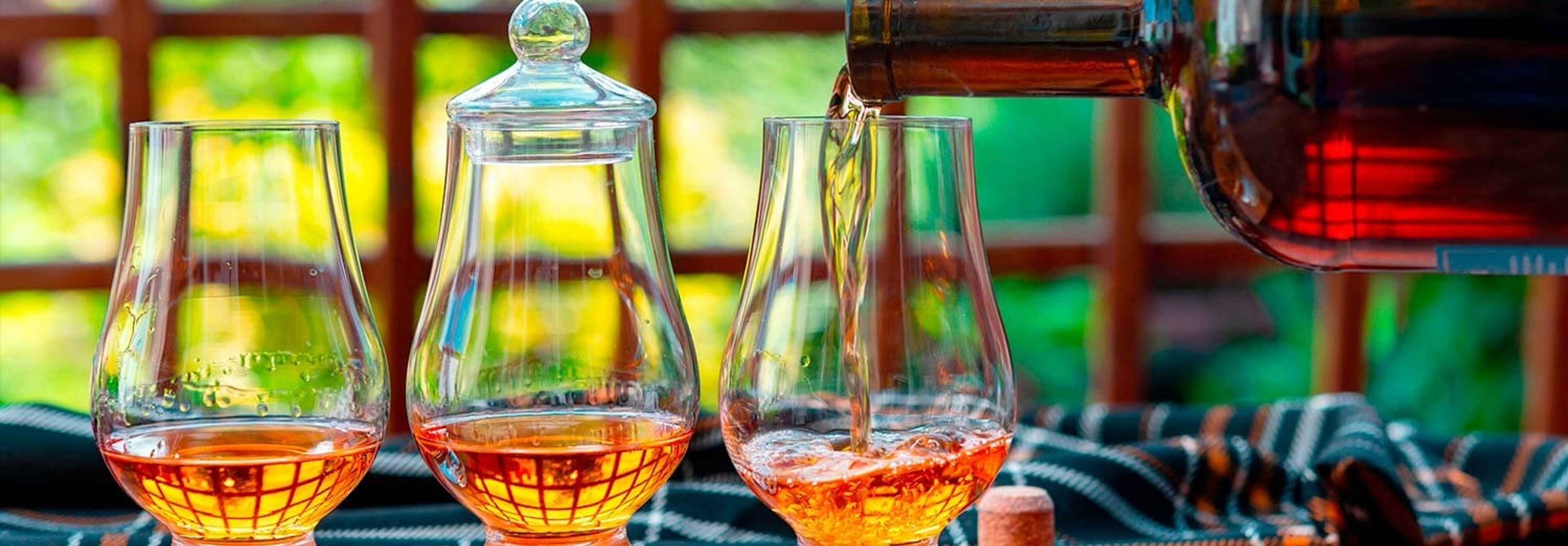
Other Scotch 48 Year Old Whisky
With a maturation period of 48 years, whisky undergoes a profound transformation. Over the decades, the spirit inside its wooden sanctuary gradually absorbs elements from its environment. This extended interaction cultivates a harmonious profile as the 48-year-old whisky imbibes the wood's character while shedding any lingering sharpness. What remains is a sophisticated, well-aged masterpiece, a testament to the commitment of its makers.
Whisky, spelt 'whiskey' in some regions, is a distilled alcoholic beverage made from fermented grain mash, boasting a broad spectrum of flavours and aromas. The choice of grains—whether barley, corn, rye, or wheat—is pivotal in defining each whisky's distinctive traits. The origins of whisky are deep and intricate, with distillation practices dating back to ancient times. Originally, around 2000 BC, the Babylonians used distillation for perfumes, but it wasn't until the 15th century that monks in Ireland and Scotland began to develop what we now recognise as whisky. The production process is intricate and protracted, starting with malting the grains, which are soaked, allowed to germinate, and then dried in a kiln. This halts germination and converts starches to fermentable sugars.
The malted grains are ground into a coarse powder, mixed with hot water to create a mash, and then fermented with yeast to produce a wash. Distillation, typically in copper pot stills, concentrates the alcohol and refines the flavours. The new make spirit is then transferred to wooden casks for ageing, over time developing its flavours, colour, and complexity. The type of cask wood, its size, and the ageing conditions all significantly influence the final character of the whisky.
Prominent whisky-producing regions include Scotland, Ireland, the United States, and Canada, each with their own unique styles and stringent production standards. Scotch whisky, renowned for its complex and peaty flavours, mandates a minimum of three years of ageing in oak casks within Scotland. On the other hand, American Bourbon, requiring a grain mix with a minimum of 51% corn, is aged in new charred oak barrels, leading to a sweeter and fuller flavour profile. Whisky tasting is a rich and varied experience, allowing connoisseurs to traverse a wide array of flavours, from fruity and spicy to sweet and smoky. The layered history and complex nature of whisky, especially one as aged as 48 years, invite a deep appreciation of the spirit.
Whisky, spelt 'whiskey' in some regions, is a distilled alcoholic beverage made from fermented grain mash, boasting a broad spectrum of flavours and aromas. The choice of grains—whether barley, corn, rye, or wheat—is pivotal in defining each whisky's distinctive traits. The origins of whisky are deep and intricate, with distillation practices dating back to ancient times. Originally, around 2000 BC, the Babylonians used distillation for perfumes, but it wasn't until the 15th century that monks in Ireland and Scotland began to develop what we now recognise as whisky. The production process is intricate and protracted, starting with malting the grains, which are soaked, allowed to germinate, and then dried in a kiln. This halts germination and converts starches to fermentable sugars.
The malted grains are ground into a coarse powder, mixed with hot water to create a mash, and then fermented with yeast to produce a wash. Distillation, typically in copper pot stills, concentrates the alcohol and refines the flavours. The new make spirit is then transferred to wooden casks for ageing, over time developing its flavours, colour, and complexity. The type of cask wood, its size, and the ageing conditions all significantly influence the final character of the whisky.
Prominent whisky-producing regions include Scotland, Ireland, the United States, and Canada, each with their own unique styles and stringent production standards. Scotch whisky, renowned for its complex and peaty flavours, mandates a minimum of three years of ageing in oak casks within Scotland. On the other hand, American Bourbon, requiring a grain mix with a minimum of 51% corn, is aged in new charred oak barrels, leading to a sweeter and fuller flavour profile. Whisky tasting is a rich and varied experience, allowing connoisseurs to traverse a wide array of flavours, from fruity and spicy to sweet and smoky. The layered history and complex nature of whisky, especially one as aged as 48 years, invite a deep appreciation of the spirit.
Price
Advanced Search
Age in years
All
Bottling year
All
Vintage
All
Alcohol by volume
All
Categories
Distilleries & brands
Style
User rating
Bottle size
Countries
Regions

